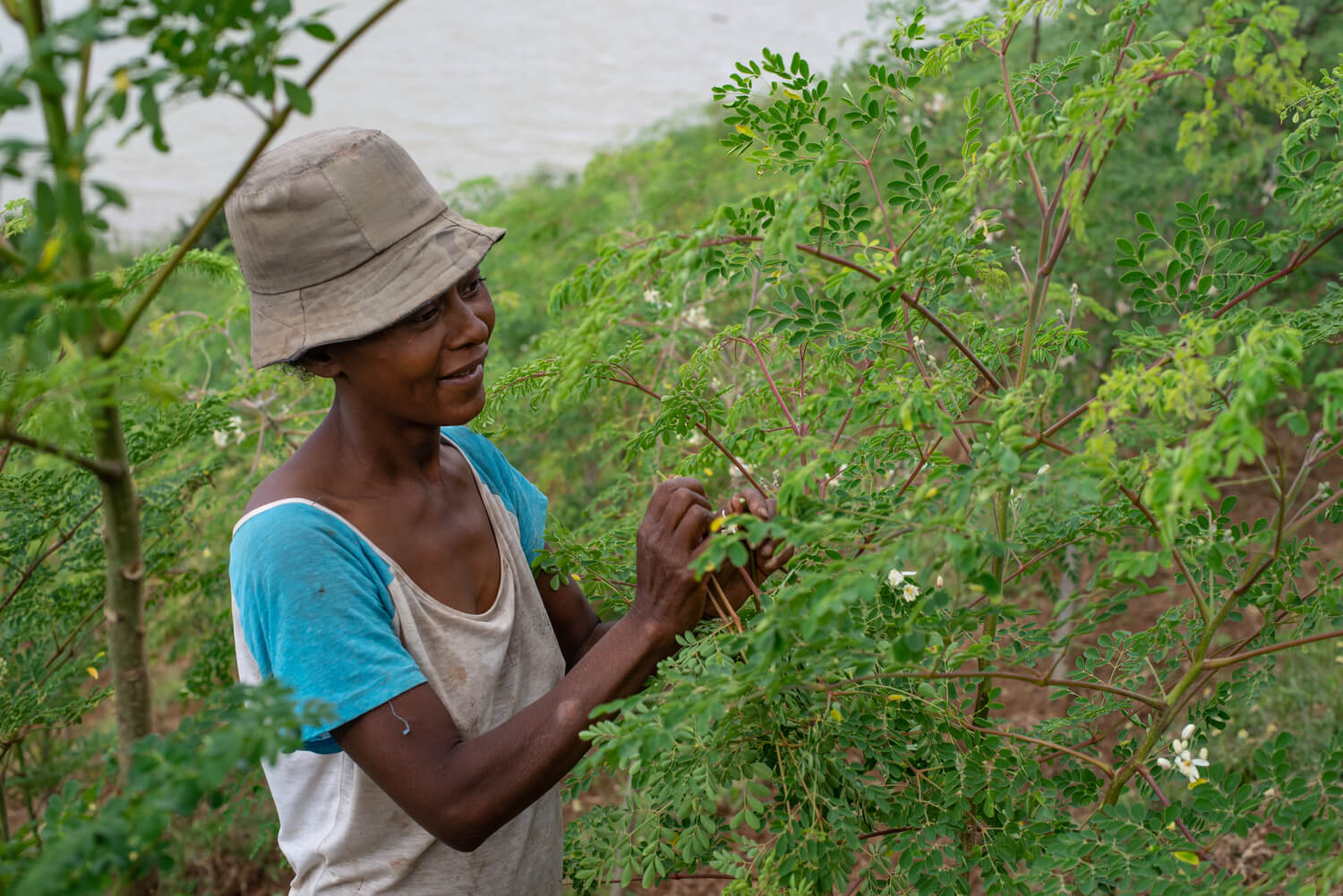Malnutrition represents a serious public health problem and a national priority in Madagascar because it compromises children's cognitive abilities and their future.
In 2021, the country ranked 10th in the world for chronic malnutrition and 7th in Africa. About 47% of children under 5 suffer from chronic malnutrition, while 8% are affected by acute malnutrition. *

In addition, it has been demonstrated that chronic malnutrition is a problem that starts as early as pregnancy: about 30% of women of reproductive age at Ampefy do not follow a sufficiently diversified diet and only 50% have changed their diet during pregnancy and during breastfeeding. These deficiencies negatively affect neonatal psycho-physical development**.
In 2016, we established our Nutrition Center, which is located at the Medical Center, but it operates mainly on the field, identifying malnourished or at-risk children between the ages of 6 months and 5 years.
A part of the nutrition team goes daily to the villages of the municipality of Ampefy, according to a well-defined schedule, carrying out Dépistage, distribution of therapeutic flours, culinary demonstrations and mobile clinics.








Since 2017, we have been cultivating Moringa Oleifera, also known as a “miracle tree,” on a plot of 1,400 m² on which about 10,000 plants are distributed.
This plant, which is particularly rich in protein, iron, calcium, vitamin A and vitamin C, is a key element of our nutritional initiatives. In fact, it allows us to produce a food supplement with excellent nutritional properties, subject to analysis at the Universities of Pavia and Milan.

Our long-term goal is to directly self-produce enriched therapeutic flours, used in the treatment of moderate acute malnutrition. This project could allow us to reduce purchasing costs and create job opportunities for the local community, stimulating the economy.
We would like to buy land close to the Moringa plantation to grow fresh vegetables, intended for school and hospital canteens. Among the benefits are a greater availability of nutritious foods and a more sustainable local supply chain.
These future projects reflect our commitment to the long-term well-being of local communities, integrating food security with economic development.